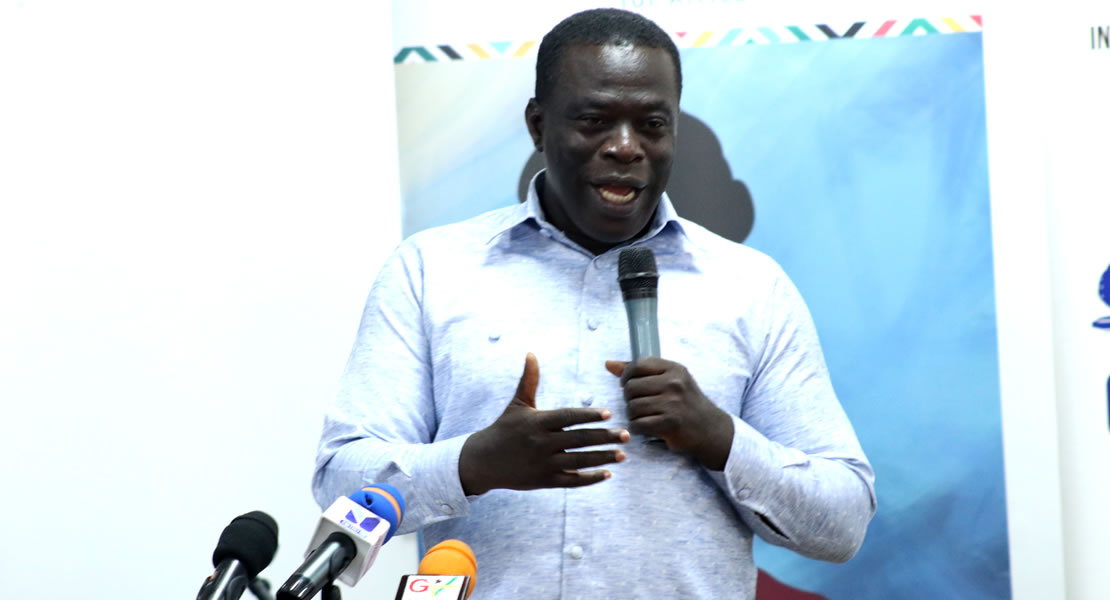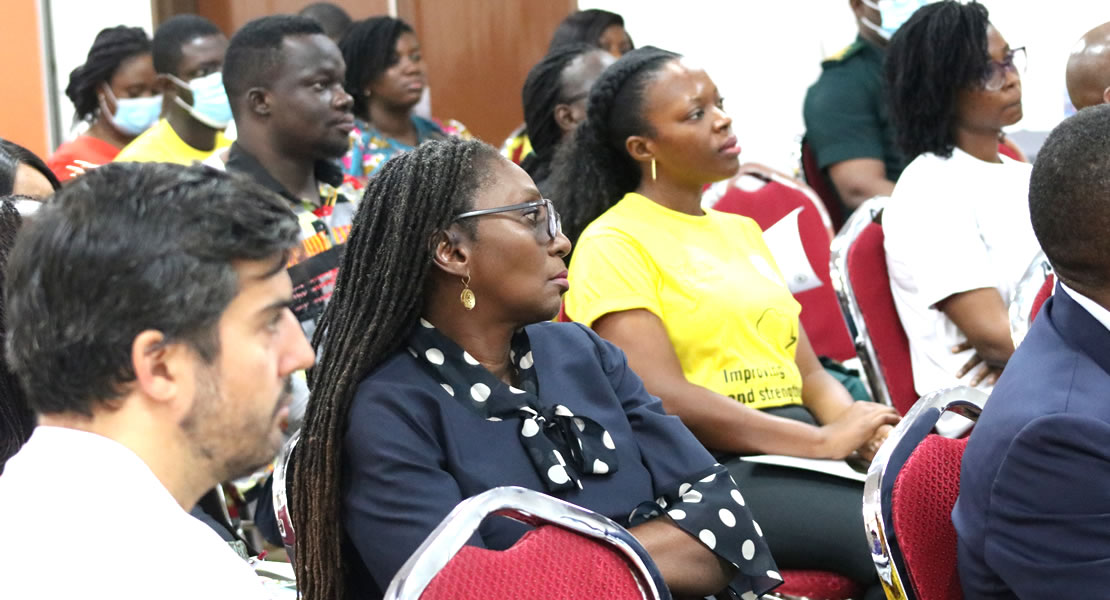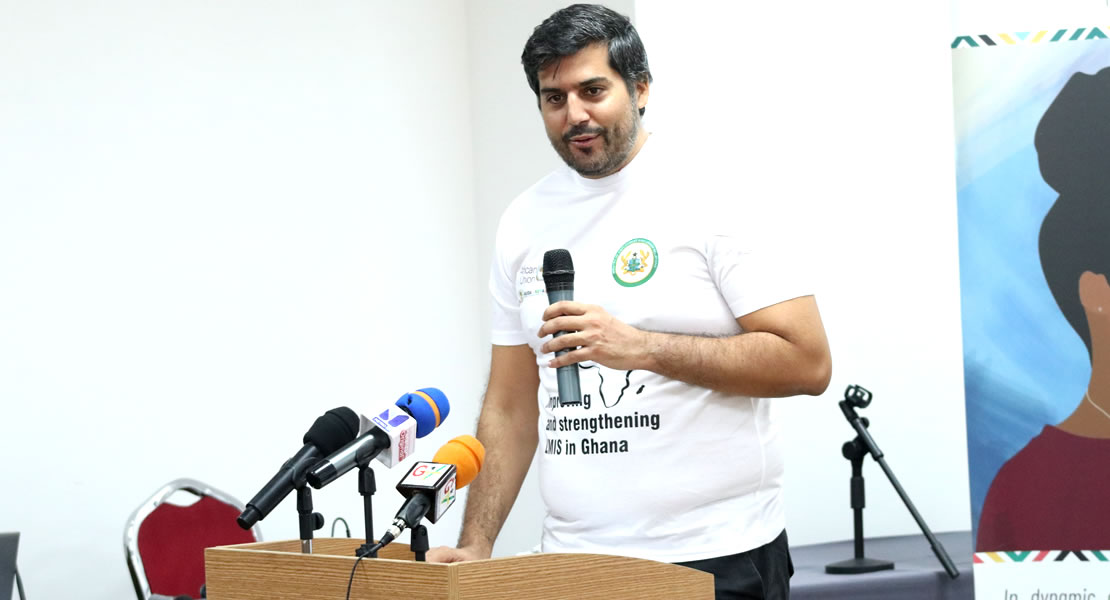
The Minister for Employment and Labour Relations Ignaius Baffour Awuah has underscored the importance of the Country having a labour market information system as it will help in policy decision making.
According to him having a functional market information system is very critical stating that as a Ministry they are supposed to turn out information on labour statistics to government and the general public; but lamented that they are either non-existence or there are scanty information which is useful for policy formulation.
And further lamented that in this modern age in the 21st century where the world is driven by technology, “we continue to use manual system for gathering information”.

He made this remarks at the launch of the national action plan on labour market information system in Ghana.
He added that he looks forward to its outcome and reminded the actors and consultants that they have a lot to do, because six years down the line since he became a Minister of that Ministry, one of the things he was lectured on was Labour Market Information System.
“ So I thought we were almost there, I got the assurance it would be launched half way and it was going to be lunched six years down the line, it is yet to be launched. I do not know if the program is dead”, he lamented.
He further pointed out that the system of gathering labour information, sometimes you get a labour officer who is lazy and does not capture the information well, and will not give out accurate information.
When you get an officer who gets accurate information captured, “sometimes you get people questioning how authentic information on the labour market is; and we ourselves do lack the confidence to even defend those figures”.
Mr. David Marcos, an officer in charge of the International Labour Organisation noted that the mismatch and imbalance between the demand and supply of skills contributes to the costly economic inefficacies, resulting in difficult transition from education to productive, employment and under-utilisation of existing skills at the work place.
And limited portability of skills and qualification across countries, regions and the continent as countries that have succeeded in linking skills to productivity gains, increase employment and enhanced development have targeted skills development policies towards matching supply to demand for skills.

The ILO through the SIFA-Skills Anticipation Programme component conducted a study in Ghana in 2020 to map existing labour market information system and practices and to establish the extent to which the system has institutionalized skills anticipation as an integral part of the national LMIS system.
The research study aimed at mapping the existing data sources or providers, and reviewing current practices, capacities and institutional arrangements for labour market information and skills anticipation in Ghana.
The main objective was to inform the Skills Anticipation Component of the Africa Union Commission (AUC), which aims at facilitating the identification and anticipation of skills as an integral part of national labour market information systems (LMIS).
This was important to ensure that skills supply and skills demand in African labour markets can be matched effectively to help deal with the unemployment challenge and threats faced by respective governments of targeted AUC Member States.
The study provided concrete recommendations for the improvement of existing systems and structures of labour market information databases in Ghana and, thereby, supporting effective skills anticipation processes.
The study established that there are insufficient organizational structures and human resources to centralize labour market information and provide evidence for making education and training more responsive to current and future skills needs.
It is examined different institutions involved in data collection activities and concluded that the MOELR, in terms of its mandate as the government agency responsible for the formulation and implementation of policies on employment planning, should have the overall responsibility for any possible future skills matching and anticipation system in Ghana.
Based on the foregoing the study concluded that Ghana does not have a well-functioning skills matching and anticipation system in place and proposes a framework for better matching and anticipation of Ghana’s skills needs to meet the growing digital skills for up skilling the workforce for the emerging Africa’s single market.
The mapping exercise, therefore provided an overview of the Ghana Labour Market Information system, its data sources, its, capacities and institutional arrangements. The report also highlighted strengths and weaknesses of the current system including the fact the Country does not have an institutionalized process of anticipating labour market skills needs.
Subsequently, in 2021, a National Task Team was formed that worked to develop a National Action Plan for improving and strengthening Labour Market Information and Skills Anticipation Systems in Ghana.
He noted that launch event is yet another success story of effective collaboration among ILO projects in the Africa region. The SKILL UP Project and the SIFA Skills Anticipation project have been working in tandem to strengthen the skills anticipation system in Ghana.
And these collaborative efforts, SIFA have supported the Ministry of Employment and Labour Relations to develop a National Action Plan for strengthening and improving Labour Market Information and Skills Anticipation System in Ghana which is being launched today.
The National Action Plan which has been duly costed will serve as a resource mobilization tool for the Ministry and other collaborators to be able to harness the needed resources towards the implementation of the recommended actions.
“I am glad to note that the development of the National Action Plan is timely as the Ghana Jobs and Skills Project, funded by the World Bank, will support the implementation of key recommendations of this National Action Plan”.
He further pledged the continues support of the ILO in pursuit of this noble dream of improving and strengthening the Labour Market Information System with the view to promoting decent work and social justice.
Ghanamps.com